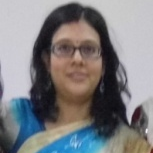International Journal of Computer Network and Information Security (IJCNIS)
IJCNIS Vol. 11, No. 9, 8 Sep. 2019
Cover page and Table of Contents: PDF (size: 749KB)
An Approach to Develop a Transactional Calculus for Semi-Structured Database System
Full Text (PDF, 749KB), PP.24-39
Views: 0 Downloads: 0
Author(s)
Index Terms
Semi-structured, transactional calculus, X-Query, GOOSSDM, CAP, BASE, GQL-SS
Abstract
Traditional database system forces all data to adhere to an explicitly specified, rigid schema and most of the limitations of traditional database may be overcome by semi-structured database. Whereas a traditional transaction system guarantee that either all modifications are done or none of these i.e. the database must be atomic (either occurs all or occurs nothing) in nature. In this paper transaction is treating as a mapping from its environment to compensable programs and provides a transaction refinement calculus. The motivation of the Transactional Calculus for Semi Structured Database System (TCSS) is-finally, on a highly distributed network, it is desirable to provide some amount of fault tolerance. The paper proposes a mathematical framework for transactions where a transaction is treated as a mapping from its environment to compensable programs and also provides a transaction refinement calculus. It proposes to show that most of the semi structured transaction can be converted to a calculus based model which is simply consists of a forward activity and a compensation module of CAP (consistency, availability, and partition tolerance) [12] and BASE (basic availability, soft state and eventually consistent) [45] theorem. It proposes to show that most of the semi-structured transaction can be converted to a calculus based model which is simply consists of a forward activity and a compensation module of CAP and BASE theorem. It is important that the service still perform as expected if some nodes crash or communication links fail, Verification of several useful properties of the proposed TCSS includes in this article. Moreover, a detailed comparative analysis has been providing towards evaluation of the proposed TCSS.
Cite This Paper
Rita Ganguly, Anirban Sarkar, "An Approach to Develop a Transactional Calculus for Semi-Structured Database System", International Journal of Computer Network and Information Security(IJCNIS), Vol.11, No.9, pp.24-39, 2019.DOI:10.5815/ijcnis.2019.09.04
Reference
[1]Conrad R., Scheffner D., Freytag J. C., "XML conceptual modeling using UML", 19thIntl. Conf. on Conceptual Modeling, PP: 558-574, 2000.
[2]Anirban Sarkar, “Design of Semi-structured Database System: Conceptual Model to Logical Representation”, Book Titled: Designing, Engineering, and Analyzing Reliable and Efficient Software, Editors: H. Singh and K. Kaur, IGI Global Publications, USA, PP 74 – 95, 2013.
[3]McHugh J., Abiteboul S., Goldman R., Quass D., Widom J., "Lore: a database management system for semistructured data", Vol. 26 (3), PP: 54 - 66, 1997.
[4]Badia, A., "Conceptual modeling for semistructured data", 3rdInternational Conference on Web Information Systems Engineering, PP: 170 – 177, 2002.
[5]Mani M., “EReX: A Conceptual Model for XML”, 2ndInternational XML Database Symposium, PP 128-142, 2004.
[6]Suresh Jagannathan, Jan Vitek,Adam Welc, Antony Hosking, A Transactional Object Calculus, Dept of Comp.sc,Purdue University, West Lafayette, IN 47906, United States.
[7]Liu H., Lu Y., Yang Q., "XML conceptual modeling with XUML", 28thInternational Conference on Software Engineering, PP: 973–976, 2006.
[8]Combi C., Oliboni B., "Conceptual modeling of XMLdata", ACM Symposium on Applied Computing, PP: 467– 473, 2006.
[9]Wu X., Ling T. W., Lee M. L., Dobbie G.," Designing semistructured databases using ORA-SSmodel", 2ndInternational Conference on Web Information Systems Engineering, Vol. 1, PP: 171 –180, 2001.
[10]Seth Gilbert and Nancy Lynch. Brewer’s conjecture and the feasibility of consistentavailable, partition tolerant web services.SigActNews, June2002.
[11]Rita Ganguly, RajibKumarchatterjee,Anirban Sarkar. “Graph Semantic based Approach for Quering Semi-structured Database System.”22nd International Conference on SEDE-2013, pp: 79-84.
[12]Seth Gilbert National University of Singapore and Nancy Lynch. Brewer’sMassachusetts Institute of Technology,”Perspectives on the CAP Theorem.
[13]Soichiro Hidaka Zhenjiang Hu Kazuhiro Inaba Hiroyuki Kato , “Bidirectionalizing Structural Recursion on Graphs”,Techical Report, National Institute of Informatics, The University of Tokyo/JSPS Research Fellow, The University of Electro-Communications, August 31, 2009
[14]Data Validation, Data Integrity, Designing Distributed Applications with Visual Studio NET, Arkady Maydanchik (2007), "Data Quality Assessment", Technics Publications, LLC
[15]Object Oriented Transaction Processing in the KeyKOS® Microkernel. William S. Frantz ,Periwinkle Computer Consulting, 16345 Englewood Ave. Los Gatos, CA USA 95032 rantz@netcom.com Charles R. Landau ,Tandem Computers Inc. 19333
[16]Vallco Pkwy, Loc 3-22 ,Cupertino, CA USA 95014 landau_charles@tandem.com. Introduction to Object-Oriented Databases. Prof. Kazimierz Subieta ,subieta@pjwstk.edu.pl,http://www.ipipan.waw.pl/~subieta Ni W., Ling T. W., “GLASS: A Graphical Query Language for Semi-structured Data”, 8th International Conference on Database Systems for Advanced Applications, PP 363 –370, 2003.
[17]R. K. Lomotey and R. Deters, “Datamining from document-append NoSQL,” Int. J. Services Comput., vol. 2, no. 2, pp. 17–29, 2014.
[18]Braga, D., Campi, A. and Ceri, S., “XQBE (XQuery By Example): A visual interface to the standard XML query language”, ACM Transactions on Database Systems(TODS), Vol.30 (5), pp. 398 – 443, 2003.
[19]AnirbanSarkar, "Conceptual Level Design of Semi-structured Database System: Graph-semantic Based Approach", International Journal of Advanced Computer Science and Applications, The SAI Pubs. , New York, USA, Vol. 2, Issue 10, PP 112 – 121,November, 2011. [ISSN: 2156-5570(Online) &ISSN : 2158-107X(Print)].
[20]T. W. Ling. A normal form for sets of not-necessarily normalized relations. In Proceedings of the 22nd Hawaii International Conference on System Sciences, pp. 578-586. United States: IEEE Computer Society Press, 1989.
[21]T. W. Ling and L. L. Yan. NF-NR: A Practical Normal Form for Nested Relations. Journal of Systems Integration. Vol4, 1994, pp309-340.
[22]Rita Ganguly,Anirban Sarkar “ Evaluations of Conceptual Models for Semi-structured Database system “. International Journal of ComputerApplications.Vol 50, Issue 18, PP 5-12,july,2012.[ISBN:973-93-80869-67-3].
[23]Rami Sellami, Sami Bhiri , and Bruno Defude, “Supporting Multi Data Stores Applications in cloud Environments.” IEEE Transactions on services computing, vol-9, No-1,pp-59-71, January/February2016.
[24]O. Cur_e, R. Hecht, C. Le Duc, and M. Lamolle, “Data integration over NoSQL stores using access path based mappings,” inProc. 22nd Int. Conf. Database Expert Syst. Appl., Part I, 2011, pp. 481–495.
[25]ACID vs. BASE: The Shifting pH of Database Transaction Processing, By Charles Roe, www.dataversity net
[26]Martin Abadi Microsoft Research.university of california santa cruz, Tim Harris, Microsoft Research, Katherine F Moore Microsoft Research, University of Washington, “A Model of Dynamic Seperation for Transactional Memory”.
[27]Manfred Schmidt-Schau_, David Sabel Goethe-University, Frankfurt, Germany, ICFP '13, Boston, USA, Correctness of an STM Haskell Implementation.
[28]B. Liskov and R. Scheifler. Guardians and actions: Linguistic support for robust distributed programs. ACM Transactions on Programming Languages and Systems, 5(3):381–404, July 1983.
[29]J. Eliot B. Moss. Nested Transactions: An Approach to Reliable Distributed Computing.MIT Press, Cambridge, Massachusetts, 1985.
[30]Jeffrey L. Eppinger, Lily B. Mummert, and Alfred Z. Spector, editors. Camelot and Avalon: A Distributed Transaction Facility. Morgan Kaufmann, 1991.
[31]D. D. Detlefs, M. P. Herlihy, and J. M. Wing. Inheritance of synchronization and recovery in Avalon/C++. IEEE Computer, 21(12):57–69, December 1988.
[32]Nicholas Haines, Darrell Kindred, J. Gregory Morrisett, Scott M. Nettles, and Jeannette M. Wing. Composing first-class transactions. ACM Transactions on Programming Languages and Systems, 16(6):1719–1736, November 1994.
[33]Alex Garthwaite and Scott Nettles. Transactions for Java. In Malcolm P. Atkinson and Mick J. Jordan, editors, Proceedings of theFirst International Workshop on Persistenceand Java, pages 6–14. Sun Microsystems Laboratories Technical Report 96-58, November1996.
[34]Richard J. Lipton. Reduction: a new method of proving properties of systems of processes. InProceedings of the 2nd ACM SIGACT-SIGPLAN symposium on Principles of programming languages, pages 78–86. ACM Press, 1975.
[35]Shaz Qadeer, Sriram K. Rajamani, and JakobRehof. Summarizing procedures in concurrent programs. In
Proceedings of the 31st ACM SIGPLAN-SIGACT symposium on Principlesof programming languages, pages 245–255. ACM Press, 2004.
[36]Nancy Lynch, Michael Merritt, William Weihl, and Alan Fekete. Atomic Transactions. Morgan-Kaufmann, 1994.
[37]Panos Chrysanthis and Krithi Ramamritham. Synthesis of Extended Transaction Models Using ACTA. ACM Transactions on Database Systems, 19(3):450–491, 1994.
[38]Jim Gray and Andreas Reuter. Transaction Processing: Concepts and Techniques. Data Management Systems. Morgan Kaufmann, 1993.
[39]Andrew Black, Vincent Cremet, Rachid Guerraoui, and Martin Odersky. An Equational Theory for Transactions. Technical Report CSE 03-007, Department of Computer Science, OGI School of Science and Engineering, 2003.
[40]Tom Chothia and Dominic Duggan. Abstractions for Fault-Tolerant Computing. Technical Report 2003-3, Department of Computer Science, Stevens Institute of Technology, 2003.
[41]N. Busi, R. Gorrieri, and G. Zavattaro. On the Serializability of Transactions in Java Spaces. InConCoord 2001, International Workshop on Concurrency and Coordination, 2001.
[42]R. Bruni, C. Laneve, and U. Montanari. Orchestrating Transactions in the Join Calculus.In 13th International Conference on Concurrency Theory, 2002.
[43]E. Preston Carman, Jr.1, Till Westmann2§, Vinayak R. Borkar3*, Michael J. Carey4, Vassilis J. Tsotras11University of California, Riverside 2Couchbase 3X15 Software, Inc. 4University of California, Irvine Email: ecarm002@ucr.edu A Scalable Parallel XQuery Processor 2015 IEEE International Conference on Big Data (Big Data)978-1-4799-9926-2/15/$31.00 ©2015 IEEE 164.
[44]Shreya Banerjee and Anirban Sarkar “Ontology-driven approach towards domain-specific system design “.International journal semantics and ontologies, vol 11, no 1, pp- 39-60.
[45]ACID vs. BASE: The Shifting pH of Database Transaction Processing,By Charles Roe ,www.dataversity net.

